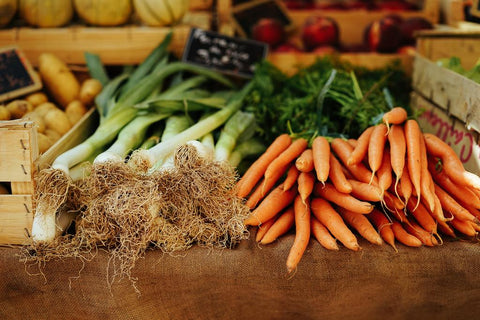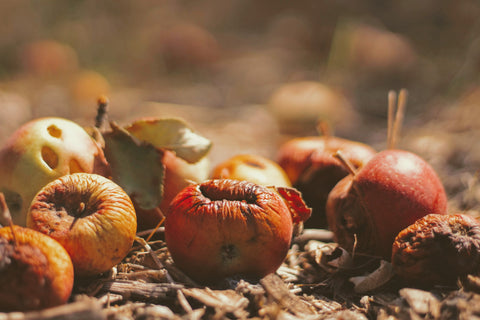How To Reduce Food Waste In Your Takeaway Business
Food waste is a significant problem for takeaway businesses because it costs money and it is not sustainable. In recent years, there has been an increased focus on reducing food waste and consumers want the food businesses that they deal with to take an active approach to preventing it. So, in order to save money and improve your public image, you need to find ways to tackle food waste in your takeaway business.
Why does food waste occur?
Understanding the causes of food waste is the first step towards reducing it. There are a few key reasons why food waste occurs in takeaway businesses:
- Uneaten Food - The most obvious source of food waste is uneaten food that goes into the bin. To some extent, this is out of your control as you cannot stop customers from leaving food. However, if this is a common issue, you may want to look at portion sizes and consider using different sized food packaging boxes.
- Food going off in transit - Problems with temperature controls during transit and delivery can cause food to go off. Fresh produce only has a very limited shelf life and delays to the journey can lead to a large amount of food waste.
- Fresh produce not meeting marketplace standards - Supermarkets have specific guidelines about the size, shape, and colour standards of fruit and vegetables. A huge amount of food is thrown away by farmers because it doesn’t meet those standards.
- Food stored at the wrong temperature - Proper storage of fresh produce will make it last much longer. But if your refrigerator or freezer are not at the correct temperature, food will spoil faster, leading to more waste.
In order to reduce food waste in your business, you need to take steps to address each of these potential causes. Here are some simple things you can do today to cut food waste.
1. Check your fridge temperature
Correctly storing all fresh produce is the most important thing you can do. You must check the temperature of your fridge on a daily basis to ensure that food is kept at the right temperature and the fridge is working correctly. The temperature should be between 0-5 degrees Celsius to stop food from spoiling.
The way that you pack the fridge makes a difference too. When it is full, you may need to adjust the settings to maintain the right temperature as it takes longer to cool. Storing items in a container in the fridge can keep it fresher and make it last even longer. This hinged food container, for example, is perfect for serving food as well as improving longevity in the fridge. You should also be aware that certain foods like bread, potatoes, and onions will last longer when kept out of the fridge.
2. Use local green grocers and butchers

Using local green grocers and butchers instead of supermarkets helps you reduce food waste in a number of ways. Firstly, they are less selective about the produce that they stock and they will not reject fruit and veg because it is a slightly odd size or shape. By purchasing ingredients from them instead of the supermarket, you help to reduce the amount of perfectly good food that is thrown out because it doesn’t meet the right standards.
Secondly, green grocers and butchers are more likely to source their produce from local farms. This reduces the chances of food spoiling in transit, and also cuts the carbon emissions of the food that you use at the same time.
3. Ensure the food you buy has viable sell by dates

If you buy food that is already close to spoiling, you only have a very limited time to use it before it must be thrown away. You are not legally allowed to sell food that has passed its use by date (this is different from the best before date), so anything that goes out is instantly wasted. That’s why you should always check before you buy and ensure that you have enough time to sell everything that you are buying.
4. Freeze any dairy products you have
Freezing food before it spoils is an excellent way to prevent waste, and you can easily defrost it and use it later. Dairy products freeze particularly well, especially milk, yoghurt and hard cheeses. Dairy products tend to be quite expensive too, so avoiding waste can be a big money saver.
When you defrost dairy products like milk or yoghurt, it is common for them to separate. There is no need to worry about this, simply stir or shake them for a minute or so and they will return to normal.
5. Do not overbuy
Inventory management is crucial for reducing food waste in a takeaway business. If you buy far more than you can realistically sell before it spoils, all of that food goes in the bin and a huge amount of money is wasted. To avoid this, you need a clear idea of how much of each item you are likely to sell. You can look at sales figures and then determine the popularity of each food item on the menu. From there, work out what ingredients you need to meet that demand. Naturally, this is not an exact science and you may purchase slightly more than you need, but you can limit waste by improving your inventory management.
For food items that are expensive or things that spoil very easily, consider offering a limited amount. Purchase the same ingredients each week and then take that item off the menu once it has sold out.
Reducing food waste will not only save you money but it will also help you build trust with customers and show them that you are a responsible business. The most important thing is that you store food at the right temperature in good quality catering packaging for added freshness. Beyond that, you need to consider how much you are buying and where your food comes from so you can tackle food waste at the source.

